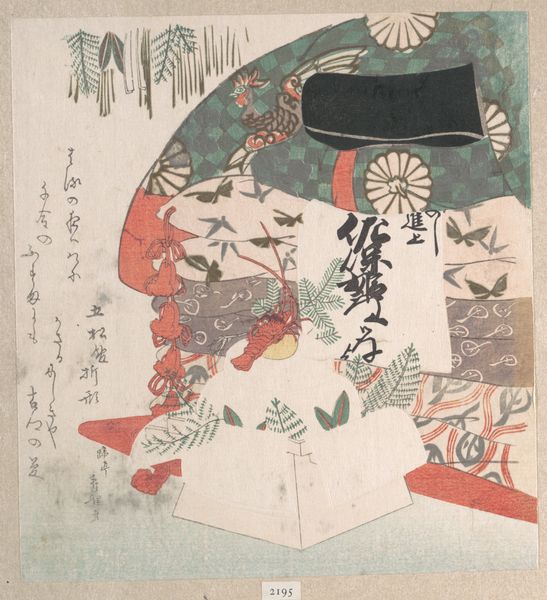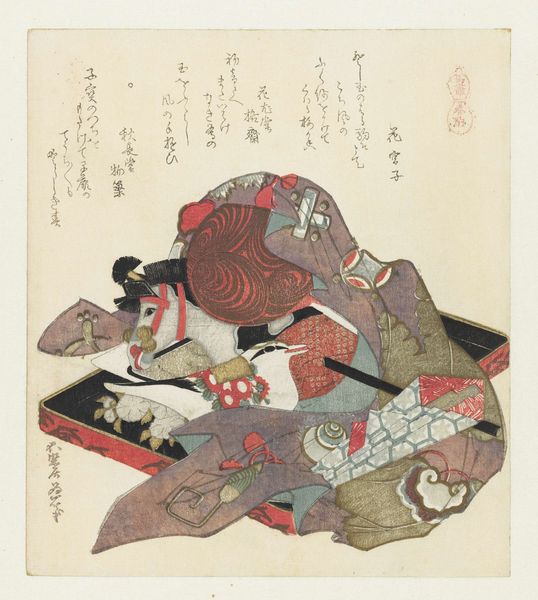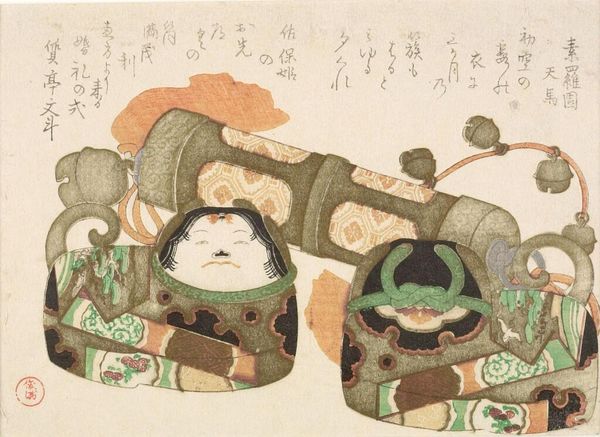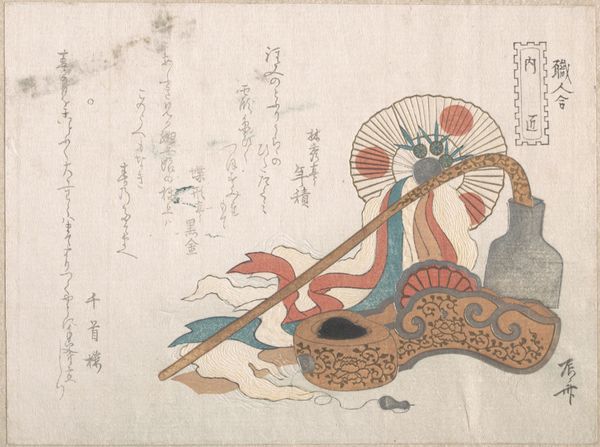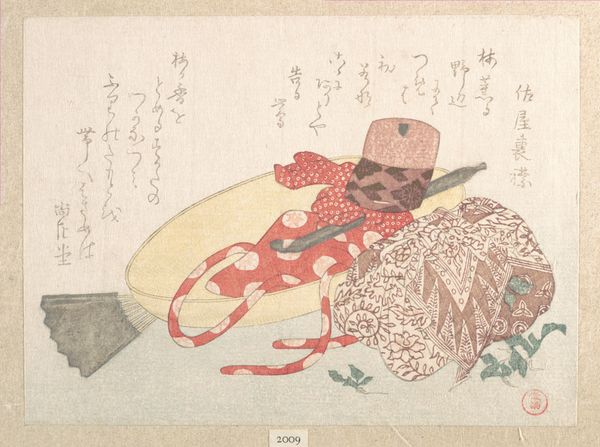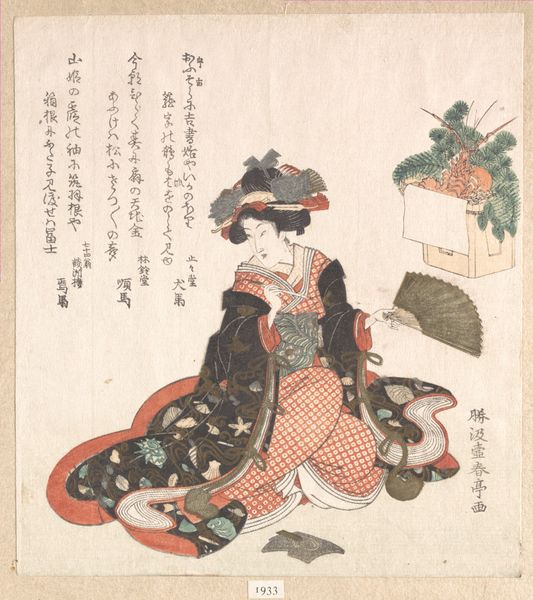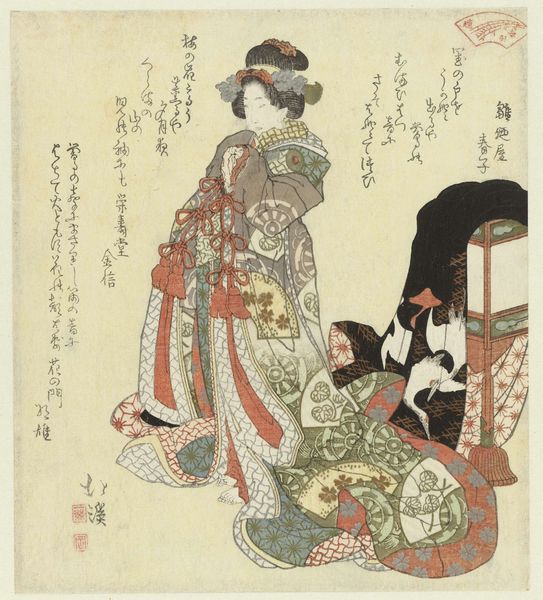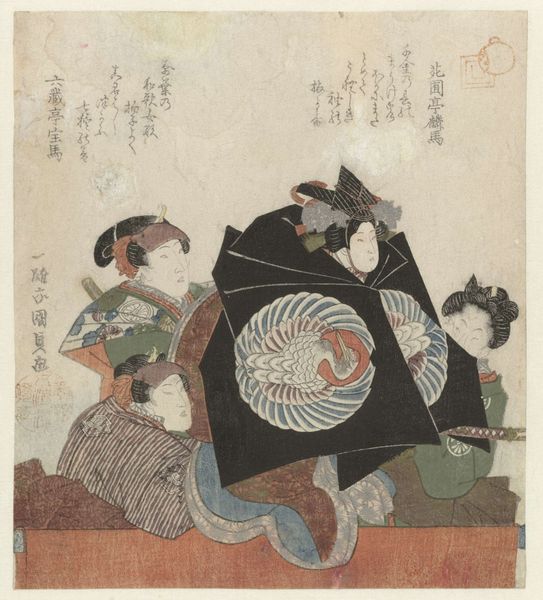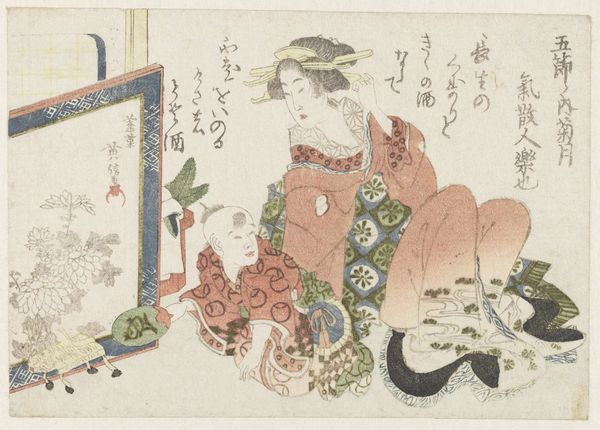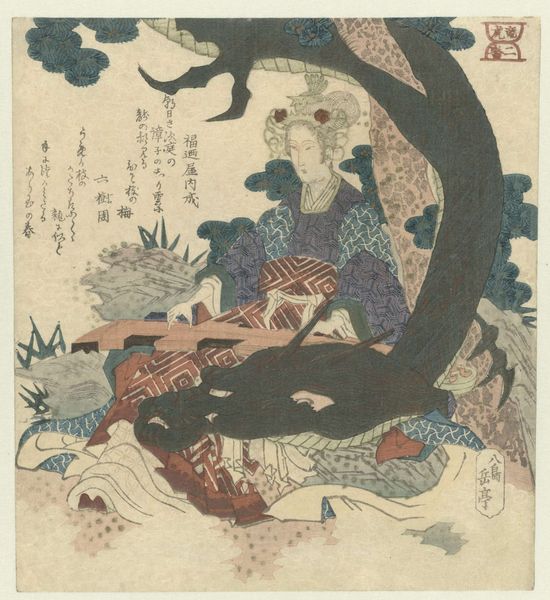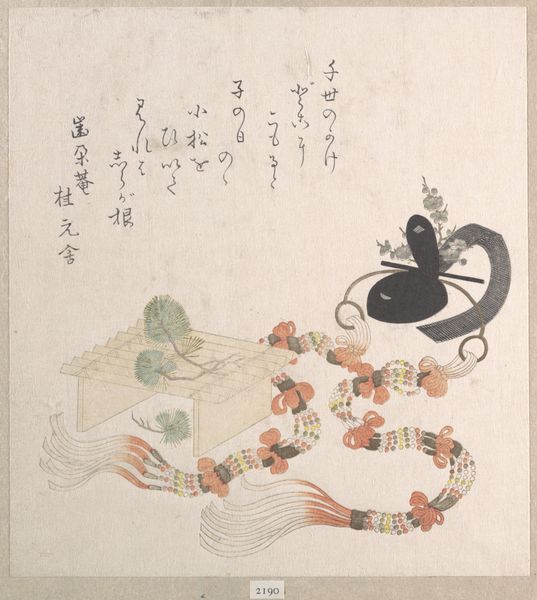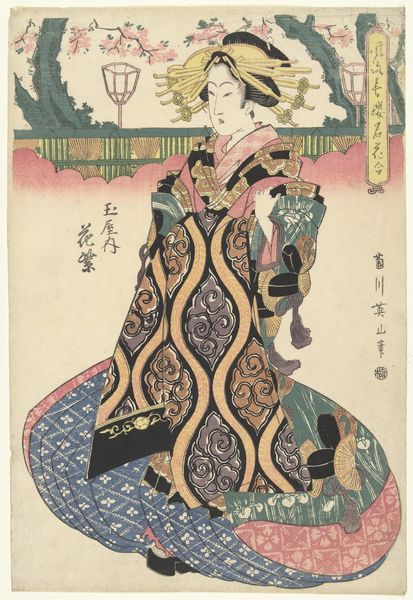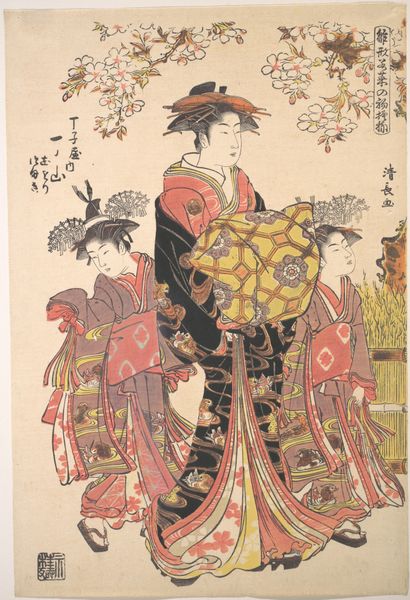
print, woodblock-print, papier-mâché
#
water colours
# print
#
asian-art
#
ukiyo-e
#
woodblock-print
#
papier-mâché
Dimensions: 5 1/2 x 7 7/16 in. (14 x 18.9 cm)
Copyright: Public Domain
Curator: I’m drawn to the almost dreamlike quality of this piece, "Toys of Papier-Mache," an intriguing woodblock print crafted by Kubo Shunman sometime between 1800 and 1820. The blend of pastel tones makes it so visually calming. What's your immediate take? Editor: The colours feel very traditional and quite elegant. It brings a somber mood; is it meant to remind of death or an impending loss? Papier-mâché is fascinating material – something fragile molded into something strong – these doll-like figures seem quite permanent here, don't they? Curator: That's interesting; while loss wasn't my first association, I get how the slightly muted palette and the stoic expressions of the figures could hint at something melancholic. Perhaps, more so than immediate loss, it speaks to impermanence, a common theme in ukiyo-e. Editor: I was intrigued by the repetition of ornamental details – the complex geometries over the toys' surfaces. Could these relate to protective symbols, maybe tied to familial safeguarding, or something even wider? Curator: You know, I think you are right to focus on the ornaments. Many of the visual motifs used on those papier-mâché objects evoke longevity, luck, and warding off evil – turtleshell patterns, floral elements. It's very plausible they are symbolic blessings woven into children’s playthings. Editor: Considering this might've been created around the turn of the 19th century, how do these motifs embed specific societal dreams? Is it a cultural desire being expressed, such as health, good status? Curator: Precisely. Shunman encapsulates aspirations and cultural hopes. Think of these toys as charged vessels. They aren't mere entertainment; they carry hopes and the cultural weight of good wishes passed from one generation to another. Editor: Yes, it really offers a cultural continuity. Reflecting now, "Toys of Papier-Mache" presents an invitation to re-examine play from a totally unique perspective. Thank you. Curator: Thank you. Thinking back on it now, it offers not just beauty on the surface, but it encourages you to reach towards something deeper, something eternal.
Comments
No comments
Be the first to comment and join the conversation on the ultimate creative platform.
